 |
| Italo Calvino |
Italo Calvino(1923 - 1985)Biography
Parents
Italo Calvino was born in Santiago de las Vegas, a suburb of Havana, Cuba, in 1923. His father, Mario, was a tropical agronomist and botanist who also taught agriculture and floriculture. Born 47 years earlier in Sanremo, Italy, Mario Calvino had emigrated to Mexico in 1909 where he took up an important position with the Ministry of Agriculture. In an autobiographical essay, Italo Calvino explained that his father "had been in his youth an anarchist, a follower of Kropotkin and then a Socialist Reformist". In 1917, Mario left for Cuba to conduct scientific experiments, after living through the Mexican Revolution.
Calvino's mother, Giuliana Luigia Evelina "Eva" Mameli, was a botanist and university professor. A native of Sassari in Sardinia and 11 years younger than her husband, she married while still a junior lecturer at Pavia University. Born into a secular family, Eva was a pacifist educated in the "religion of civic duty and science". Eva gave Calvino his unusual first name to remind him of his Italian heritage, although since he wound up growing up in Italy after all, Calvino thought his name sounded "belligerently nationalist". Calvino described his parents as being "very different in personality from one another", suggesting perhaps deeper tensions behind a comfortable, albeit strict, middle-class upbringing devoid of conflict. As an adolescent, he found it hard relating to poverty and the working-class, and was "ill at ease" with his parents' openness to the labourers who filed into his father's study on Saturdays to receive their weekly paycheck.
Early life and education
In 1925, less than two years after Calvino's birth, the family returned to Italy and settled permanently in Sanremo on the Ligurian coast. Calvino's brother Floriano, who became a distinguished geologist, was born in 1927.
The family divided their time between the Villa Meridiana, an experimental floriculture station which also served as their home, and Mario's ancestral land at San Giovanni Battista. On this small working farm set in the hills behind Sanremo, Mario pioneered in the cultivation of then exotic fruits such as avocado and grapefruit, eventually obtaining an entry in the Dizionario biografico degli italiani for his achievements. The vast forests and luxuriant fauna omnipresent in Calvino's early fiction such as The Baron in the Trees derives from this "legacy". In an interview, Calvino stated that "San Remo continues to pop out in my books, in the most diverse pieces of writing." He and Floriano would climb the tree-rich estate and perch for hours on the branches reading their favorite adventure stories. Less salubrious aspects of this "paternal legacy" are described in The Road to San Giovanni, Calvino's memoir of his father in which he exposes their inability to communicate: "Talking to each other was difficult. Both verbose by nature, possessed of an ocean of words, in each other's presence we became mute, would walk in silence side by side along the road to San Giovanni." A fan of Rudyard Kipling's The Jungle Book as a child, Calvino felt that his early interest in stories made him the "black sheep" of a family that held literature in less esteem than the sciences. Fascinated by American movies and cartoons, he was equally attracted to drawing, poetry, and theatre. On a darker note, Calvino recalled that his earliest memory was of a Marxist professor who had been brutally assaulted by Benito Mussolini's Blackshirts: "I remember clearly that we were at dinner when the old professor came in with his face beaten up and bleeding, his bowtie all torn up over it, asking for help."
Other legacies include the parents' beliefs in Freemasonry, Republicanism with elements of Anarchism and Marxism. Austere freethinkers with an intense hatred of the ruling National Fascist Party, Eva and Mario also refused to give their sons any education in the Catholic Faith or any other religion. Italo attended the English nursery school St George's College, followed by a Protestant elementary private school run by Waldensians. His secondary schooling, with a classical lyceum curriculum, was completed at the state-run Liceo Gian Domenico Cassini where, at his parents' request, he was exempted from religion classes but frequently asked to justify his anti-conformism to teachers, janitors, and fellow pupils. In his mature years, Calvino described the experience as having made him "tolerant of others' opinions, particularly in the field of religion, remembering how irksome it was to hear myself mocked because I did not follow the majority's beliefs". In 1938, Eugenio Scalfari, who went on to found the weekly magazine L'Espresso and La Repubblica, a major Italian newspaper, came from Civitavecchia to join the same class though a year younger, and they shared the same desk. The two teenagers formed a lasting friendship, Calvino attributing his political awakening to their university discussions. Seated together "on a huge flat stone in the middle of a stream near our land", he and Scalfari founded the MUL (University Liberal Movement).
Eva managed to delay her son's enrolment in the Party's armed scouts, the Balilla Moschettieri, and then arranged that he be excused, as a non-Catholic, from performing devotional acts in Church. But later on, as a compulsory member, he could not avoid the assemblies and parades of the Avanguardisti, and was forced to participate in the Italian invasion of the French Riviera in June 1940.
World War II
In 1941, Calvino enrolled at the University of Turin, choosing the Agriculture Faculty where his father had previously taught courses in agronomy. Concealing his literary ambitions to please his family, he passed four exams in his first year while reading anti-Fascist works by Elio Vittorini, Eugenio Montale, Cesare Pavese, Johan Huizinga, and Pisa cane, and works by Max Planck, Werner Heisenberg, and Albert Einstein on physics. Calvino's real aspiration was to be a playwright. His letters to Eugenio Scalfari overflow with references to Italian and foreign plays, and with plots and characters of future theatrical projects. Luigi Pirandello Pirandello and Gabriele D'Annunzio D'Annunzio, Cesare Vico Lodovici and Ugo Betti, Eugene O'Neill and Thornton Wilder are among the main authors Calvino cites as his sources of inspiration. Disdainful of Turin students, Calvino saw himself as enclosed in a "provincial shell" that offered the illusion of immunity from the Fascist nightmare: "We were ‘hard guys’ from the provinces, hunters, snooker-players, show-offs, proud of our lack of intellectual sophistication, contemptuous of any patriotic or military rhetoric, coarse in our speech, regulars in the brothels, dismissive of any romantic sentiment and desperately devoid of women."
Calvino transferred to the University of Florence in 1943 and reluctantly passed three more exams in agriculture. By the end of the year, the Germans had succeeded in occupying Liguria and setting up Benito Mussolini's puppet Republic of Salò in northern Italy. Now twenty years old, Calvino refused military service and went into hiding. Reading intensely in a wide array of subjects, he also reasoned politically that, of all the partisan groupings, the communists were the best organized with "the most convincing political line".
In spring 1944, Eva encouraged her sons to enter the Italian Resistance in the name of "natural justice and family virtues". Using the battlename of "Santiago", Calvino joined the Garibaldi Brigades, a clandestine Communist group and, for twenty months, endured the fighting in the Maritime Alps until 1945 and the Liberation. As a result of his refusal to be a conscript, his parents were held hostage by the Nazis for an extended period at the Villa Meridiana. Calvino wrote of his mother's ordeal that "she was an example of tenacity and courage… behaving with dignity and firmness before the SS and the Fascist militia, and in her long detention as a hostage, not least when the blackshirts three times pretended to shoot my father in front of her eyes. The historical events which mothers take part in acquire the greatness and invincibility of natural phenomena".
Turin and communism
Calvino settled in Turin in 1945, after a long hesitation over living there or in Milan. He often humorously belittled this choice, describing Turin as a "city that is serious but sad". Returning to university, he abandoned Agriculture for the Arts Faculty. A year later, he was initiated into the literary world by Elio Vittorini, who published his short story "Andato al comando" (1945; "Gone to Headquarters") in Il Politecnico, a Turin-based weekly magazine associated with the university. The horror of the war had not only provided the raw material for his literary ambitions but deepened his commitment to the Communist cause. Viewing civilian life as a continuation of the partisan struggle, he confirmed his membership of the Italian Communist Party. On reading Vladimir Lenin's State and Revolution, he plunged into post-war political life, associating himself chiefly with the worker's movement in Turin.
In 1947, he graduated with a Master's thesis on Joseph Conrad, wrote short stories in his spare time, and landed a job in the publicity department at the Einaudi publishing house run by Giulio Einaudi. Although brief, his stint put him in regular contact with Cesare Pavese, Natalia Ginzburg, Norberto Bobbio, and many other left-wing intellectuals and writers. He then left Einaudi to work as a journalist for the official Communist daily, L'Unità, and the newborn Communist political magazine, Rinascita. During this period, Pavese and poet Alfonso Gatto were Calvino's closest friends and mentors.
His first novel, Il sentiero dei nidi di ragno (The Path to the Nest of Spiders) written with valuable editorial advice from Pavese, won the Premio Riccione on publication in 1947.[ With sales topping 5000 copies, a surprise success in postwar Italy, the novel inaugurated Calvino's neorealist period. In a clairvoyant essay, Pavese praised the young writer as a "squirrel of the pen" who "climbed into the trees, more for fun than fear, to observe partisan life as a fable of the forest". In 1948, he interviewed one of his literary idols, Ernest Hemingway, travelling with Natalia Ginzburg to his home in Stresa.
Ultimo viene il corvo (The Crow Comes Last), a collection of stories based on his wartime experiences, was published to acclaim in 1949. Despite the triumph, Calvino grew increasingly worried by his inability to compose a worthy second novel. He returned to Einaudi in 1950, responsible this time for the literary volumes. He eventually became a consulting editor, a position that allowed him to hone his writing talent, discover new writers, and develop into "a reader of texts". In late 1951, presumably to advance in the Communist Party, he spent two months in the Soviet Union as correspondent for l'Unità. While in Moscow, he learned of his father's death on 25 October. The articles and correspondence he produced from this visit were published in 1952, winning the Saint-Vincent Prize for journalism.
Over a seven-year period, Calvino wrote three realist novels, The White Schooner (1947–1949), Youth in Turin (1950–1951), and The Queen's Necklace (1952–54), but all were deemed defective. Calvino's first efforts as a fictionist were marked with his experience in the Italian resistance during the Second World War, however his acclamation as a writer of fantastic stories came in the 1950s. During the eighteen months it took to complete I giovani del Po (Youth in Turin), he made an important self-discovery: "I began doing what came most naturally to me – that is, following the memory of the things I had loved best since boyhood. Instead of making myself write the book I ought to write, the novel that was expected of me, I conjured up the book I myself would have liked to read, the sort by an unknown writer, from another age and another country, discovered in an attic." The result was Il visconte dimezzato (1952; The Cloven Viscount) composed in 30 days between July and September 1951. The protagonist, a seventeenth century viscount sundered in two by a cannonball, incarnated Calvino's growing political doubts and the divisive turbulence of the Cold War. Skilfully interweaving elements of the fable and the fantasy genres, the allegorical novel launched him as a modern "fabulist". In 1954, Giulio Einaudi commissioned his Fiabe Italiane (1956; Italian Folktales) on the basis of the question, "Is there an Italian equivalent of the Brothers Grimm?" For two years, Calvino collated tales found in 19th century collections across Italy then translated 200 of the finest from various dialects into Italian. Key works he read at this time were Vladimir Propp's Morphology of the Folktale and Historical Roots of Russian Fairy Tales, stimulating his own ideas on the origin, shape and function of the story.
In 1952 Calvino wrote with Giorgio Bassani for Botteghe Oscure, a magazine named after the popular name of the party's head-offices in Rome. He also worked for Il Contemporaneo, a Marxist weekly.
From 1955 to 1958 Calvino had an affair with Italian actress Elsa De Giorgi, a married, older woman. Excerpts of the hundreds of love letters Calvino wrote to her were published in the Corriere della Sera in 2004, causing some controversy.
After communism
In 1957, disillusioned by the 1956 Soviet invasion of Hungary, Calvino left the Italian Communist Party. In his letter of resignation published in L'Unità on 7 August, he explained the reason of his dissent (the violent suppression of the Hungarian uprising and the revelation of Joseph Stalin's crimes) while confirming his "confidence in the democratic perspectives" of world Communism. He withdrew from taking an active role in politics and never joined another party.Ostracized by the PCI party leader Palmiro Togliatti and his supporters on publication of Becalmed in the Antilles (La gran bonaccia delle Antille), a satirical allegory of the party's immobilism, Calvino began writing The Baron in the Trees. Completed in three months and published in 1957, the fantasy is based on the "problem of the intellectual's political commitment at a time of shattered illusions". He found new outlets for his periodic writings in the journals Città aperta and Tempo presente, the magazine Passato e presente, and the weekly Italia Domani. With Vittorini in 1959, he became co-editor of 'Il Menabò, a cultural journal devoted to literature in the modern industrial age, a position he held until 1966.
Despite severe restrictions in the US against foreigners holding communist views, Calvino was allowed to visit the United States, where he stayed six months from 1959 to 1960 (four of which he spent in New York), after an invitation by the Ford Foundation. Calvino was particularly impressed by the "New World": "Naturally I visited the South and also California, but I always felt a New Yorker. My city is New York." The letters he wrote to Einaudi describing this visit to the United States were first published as "American Diary 1959–1960" in Hermit in Paris in 2003.
In 1962 Calvino met Argentinian translator Esther Judith Singer ("Chichita") and married her in 1964 in Havana, during a trip in which he visited his birthplace and was introduced to Ernesto "Che" Guevara. On 15 October 1967, a few days after Guevara's death, Calvino wrote a tribute to him that was published in Cuba in 1968, and in Italy thirty years later. He and his wife settled in Rome in the via Monte Brianzo where their daughter, Giovanna, was born in 1965. Once again working for Einaudi, Calvino began publishing some of his "Cosmicomics" in Il Caffè, a literary magazine.
Later life and work
Vittorini's death in 1966 greatly affected Calvino. He went through what he called an "intellectual depression", which the writer himself described as an important passage in his life: "...I ceased to be young. Perhaps it's a metabolic process, something that comes with age, I'd been young for a long time, perhaps too long, suddenly I felt that I had to begin my old age, yes, old age, perhaps with the hope of prolonging it by beginning it early."
In the fermenting atmosphere that evolved into 1968's cultural revolution (the French May), he moved with his family to Paris in 1967, setting up home in a villa in the Square de Châtillon. Nicknamed L'ironique amusé, he was invited by Raymond Queneau in 1968 to join the Oulipo (Ouvroir de littérature potentielle) group of experimental writers where he met Roland Barthes, and Georges Perec, all of whom influenced his later production. That same year, he turned down the Viareggio Prize for Ti con zero (Time and the Hunter) on the grounds that it was an award given by "institutions emptied of meaning". He accepted, however, both the Asti Prize and the Feltrinelli Prize for his writing in 1970 and 1972, respectively. In two autobiographical essays published in 1962 and 1970, Calvino described himself as "atheist" and his outlook as "non-religious".
Calvino had more intense contacts with the academic world, with notable experiences at the Sorbonne (with Barthes) and the University of Urbino. His interests included classical studies: Honoré de Balzac, Ludovico Ariosto, Dante, Ignacio de Loyola, Cervantes, Shakespeare, Cyrano de Bergerac, and Giacomo Leopardi. Between 1972 and 1973 Calvino published two short stories, "The Name, the Nose" and the Oulipo-inspired "The Burning of the Abominable House" in the Italian edition of Playboy. He became a regular contributor to the Italian newspaper Corriere della Sera, spending his summer vacations in a house constructed in the pinewood of Roccamare, in Castiglione della Pescaia, Tuscany.
In 1975 Calvino was made Honorary Member of the American Academy. Awarded the Austrian State Prize for European Literature in 1976, he visited Mexico, Japan, and the United States where he gave a series of lectures in several American towns. After his mother died in 1978 at the age of 92, Calvino sold Villa Meridiana, the family home in San Remo. Two years later, he moved to Rome in Piazza Campo Marzio near the Pantheon and began editing the work of Tommaso Landolfi for Rizzoli. Awarded the French Légion d'honneur in 1981, he also accepted to be jury president of the 29th Venice Film Festival.
During the summer of 1985, Calvino prepared a series of texts on literature for the Charles Eliot Norton Lectures to be delivered at Harvard University in the fall. On 6 September, he was admitted to the ancient hospital of Santa Maria della Scala in Siena where he died during the night between 18 and 19 September of a cerebral hemorrhage. His lecture notes were published posthumously in Italian in 1988 and in English as Six Memos for the Next Millennium in 1993.
 |
| Italo Calvino |
Biography of Italo Calvino,
Italian Novelist
One of the leading figures in the the post-modern literary era
ByPatrick Kennedy
Updated January 06, 2020
Fast Facts: Italo Calvino
Known For: Writer of renowned short stories and novels in the postmodern folklorist style.
Born: October 15, 1923, in Santiago de Las Vegas, Cuba
Died: September 19, 1985, in Siena, Italy
Published Notable Works: The Baron in the Trees, Invisible Cities, If on a winter's night a traveler, Six Memos for the Next Millennium
Spouse: Esther Judith Singer
Children: Giovanna Calvino
Childhood and Early Adulthood
Calvino was born in Santiago de Las Vegas, Cuba. The Calvinos relocated to the Italian Riviera soon after, and Calvino would eventually be caught up in Italy’s tumultuous politics. After serving as an obligatory member of Mussolini’s Young Fascists, Calvino joined the Italian Resistance in 1943 and participated in campaigns against the Nazi army.
This immersion in wartime politics had a significant impact on Calvino’s early ideas about writing and narrative. He would later claim that hearing fellow Resistance fighters recount their adventures awakened his understanding of storytelling. And the Italian Resistance also inspired his first novel, "The Path to the Nest of Spiders" (1957). Though both of Calvino’s parents were botanists, and though Calvino himself had studied agronomy, Calvino had more or less committed himself to literature by the mid-1940s. In 1947, he graduated from the University of Turin with a literature thesis. He joined the Communist Party that same year.
Calvino's Evolving Style
During the 1950s, Calvino absorbed new influences and progressively moved away from politically-motivated writing. Although Calvino continued to produce realistic short stories during the decade, his major project was a trilogy of whimsical, reality-bending novels ("The Non-Existent Knight", "The Cloven Viscount", and "Baron in the Trees"). These works would eventually be issued in a single volume under the title I nostri antenati ("Our Ancestors", published in Italy in 1959). Calvino’s exposure to "Morphology of the Folktale", a work of narrative theory by Russian Formalist Vladimir Propp, was partially responsible for his growing interest in fable-like and relatively non-political writing. Before 1960, he would also leave the Communist Party.
Two major changes in Calvino’s personal life took place in the 1960s. In 1964, Calvino married Chichita Singer, with whom he would have one daughter. Then, in 1967 Calvino took up residence in Paris. This change would also have an impact on Calvino’s writing and thinking. During his time in the French metropolis, Calvino associated with literary theorists such as Roland Barthes and Claude Lévi-Strauss and became familiar with groups of experimental writers, particularly Tel Quel and the Oulipo. Arguably, the nontraditional structures and painstaking descriptions of his later works are indebted to these contacts. But Calvino was also aware of the pitfalls of radical literary theory and poked fun at post-modern academia in his late novel "If on a winter’s night a traveler".
Calvino's Final Novels
In the novels that he produced after 1970, Calvino explored issues and ideas that are at the heart of many definitions of “post-modern” literature. Playful reflections on the acts of reading and writing, an embrace of diverse cultures and genres, and intentionally disorienting narrative techniques are all characteristics of classic post-modernism. Calvino’s "Invisible Cities" (1974) is a dreamlike reflection on the fate of civilization. And "If on a winter’s night a traveler" (1983) mirthfully combines a detective narrative, a love story, and an elaborate satire on the publishing industry.
Calvino re-settled in Italy in 1980. Yet his next novel, "Mr. Palomar" (1985), would touch upon Parisian culture and international travel. This book meticulously follows the thoughts of its title character, an introspective but well-off man, as he contemplates everything from the nature of the universe to expensive cheeses and comical zoo animals. "Mr. Palomar" would also be Calvino’s last novel. In 1985, Calvino suffered a cerebral hemorrhage and died in Siena, Italy in September of that year.
 |
| Italo Calvino |
By Way of an Autobiography
(from The Uses of Literature)
You ask me for a biographical note—something that always embarrasses me. Biographical data, even those recorded in the public registers, are the most private things one has, and to declare them openly is rather like facing a psychoanalyst. At least I imagine so: I have never had myself psychoanalyzed.
I will start by saying that I was born under the sign of Libra, so that in my character equilibrium and unbalance mutually correct each other’s excesses. I was born when my parents were about to come home after years spent in the Caribbean; hence the geographical instability that makes me forever long for somewhere else.
My parents’ knowledge was all concentrated on the vegetable kingdom, its marvels and its virtues. Attracted by another kind of vegetation, that of the written word, I turned my back on what they might have taught me; but wisdom in what is human also remained foreign to me.
I grew up from infancy to youth in a town on the Riviera, huddled in its microclimate. Both the sea contained in its gulf and the massive mountains seemed to me protective and reassuring. I was separated from Italy by a narrow strip of coast road, and from the world by a nearby frontier. To leave that shell was for me to repeat the trauma of birth, but I only realize that now.
Having grown up in times of dictatorship, and being overtaken by total war when of military age, I still have the notion that to live in peace and freedom is a frail kind of good fortune that might be taken from me in an instant. Given this incentive, politics took up perhaps too great a part of the preoccupations of my youth. I mean too great for me, for what contribution I might have made, since things that seem distant from politics count far more as influences on the history (even political) of countries and of people.
As soon as the war was over, I felt the call of the big city more strongly than that of my provincial roots. I found myself hesitating for a while between Turin and Milan. My choice of Turin certainly had its own reasons and was not without consequences. Now I have forgotten both reasons and consequences, but for years I told myself that if I had chosen Milan, everything would have been quite different.
I set my hand to the art of writing early on. Publishing was easy for me, and I at once found favor and understanding. But it was a long time before I realized and convinced myself that this was anything but mere chance.
Working in a publishing house, I spent more time with the books of others than with my own. I do not regret it: everything that is useful to the whole business of living together in a civilized way is energy well spent. From Turin, a city that is serious but sad, it often happened that I would slip down to Rome. (Incidentally, the only Italians I have ever heard speak of Rome in other than negative terms are the Turinese.) And so Rome is probably the Italian city where I have lived longest, without ever asking myself why.
The ideal place for me is the one in which it is most natural to live as a foreigner. Therefore, Paris is the city where I found my wife, set up home, and raised a daughter. My wife is a foreigner, too, and when the three of us are together, we talk in three different languages. Everything can change, but not the language that we carry inside us, like a world more exclusive and final than one’s mother’s womb.
Grand Bazaar (Milan), September-October 1980. I realize that in this autobiography I have dwelt chiefly on the subject of birth, and talked about the later stages as of a continuation of my first seeing the light; and now I tend to go even further back, to the prenatal world. This is the risk run by every autobiography felt as an exploration of origins, like that of Tristram Shandy, who dwells on his antecedents and, when he gets to the point of having to begin to recount his life, finds nothing more to say
 |
| Italo Calvin |
ITALO CALVINO, THE NOVELIST, DEAD AT 61
Italo Calvino, the master of allegorical fantasy who became Italy's leading contemporary novelist, died early today in a hospital in Siena, Italy, from the effects of a stroke he suffered on Sept. 6. He was 61 years old.
Mr. Calvino was among the handful of major novelists of international standing and was to have delivered the prestigious Norton lectures at Harvard this fall.
John Updike, reviewing Mr. Calvino's ''Castle of Crossed Destinies,'' said that ''no living author is more ingenious.'' The novelist and critic John Gardner called Mr. Calvino ''possibly Italy's most brilliant living writer.''
Mr. Calvino was attracted to folk tales, knights and chivalry, social allegories and legends for our time: Fabulous and comic memory chips, slightly askew, seemed to be imbedded in his unprogrammed mind. His characters defied the malaise of daily life in the modern world.
When The New York Times Book Review asked him last December what fictional character he would like to be, Mr. Calvino revealed himself and his artistic intentions in his answer:
''Mercutio. Among his virtues, I admire above all his lightness in a world of brutality, his dreaming imagination - as the poet of Queen Mab - and at the same time his wisdom, as the voice of reason amid the fanatical hatreds of Capulets and Montagues. He sticks to the old code of chivalry at the price of his life, perhaps just the sake of style, and yet he is a modern man, skeptical and ironic - a Don Quixote who knows very well what dreams are and what reality is, and he lives both with open eyes.''
Many Stories and Novels
Mr. Calvino has two books coming out in the United States this month. His new novel is ''Mr. Palomar.'' The title character, with a name that recalls the famous telescope, is a quester after knowledge, a visionary in a world sublime and ridiculous. He is impatient and taciturn in society, preferring to spin inner dialogues and listen to the silence of infinite spaces and the songs of birds.
His second book, also published here by Helen and Kurt Wolff Books, Harcourt Brace Jovanovich, is a trade paperback edition of earlier stories titled ''Difficult Loves.'' Its characters include a soldier caught up in a private world of seduction and a middle-class woman who discovers she has lost the lower half of her bikini while swimming.
Mr. Calvino's other works include ''The Baron in the Trees,'' ''The Path to the Nest of Spiders,'' ''The Castle of Crossed Destinies,'' ''Invisible Cities,'' ''Italian Folktales,'' ''Cosmicomics'' and ''If on a Winter's Night a Traveler'' and ''Marcovaldo.'' The subjects range from takeoffs on Tarot cards to satires of literary styles.
For a while after World War II, he tried to write realistic stories. His early novel, ''The Path to the Nest of Spiders,'' described his experiences while fighting with the partisans against the Nazis and Fascists in the mountains of Liguria. Eventually, he came to realize that the only way for him to write was to invent. Straight science fiction seemed too remote. In ''Cosmicomics'' he came close to science fiction, inspired by the workings of the universe.
Fables Crisscrossing Time
Thereafter, he began to grapple with modern events in his own way through fables that often crisscross time. ''If the reader looks,'' he said, ''I think he will find plenty of moral and political ideas in my stories. I suffer from everyday life. When I'm depressed, I start with some euphoric image that transmits itself. Anyway, I'm sure that I'm a man of my times. The problems of our time appear in any story I write. Knights and chivalry - they are related to today's wars. No, I'm not writing in a vacuum. The fables just make use of a different language. Politics is marginal, but literature moves along by indirection.''
By contrast to his own work, Mr. Calvino ridiculed commercial fiction, including American novels. In ''If on a Winter's Night a Traveler,'' he invented a group called the Organization for the Electronic Production of Homogenized Literary Works. He said it was inspired by the market research conducted by the television networks and some book publishers to determine what audiences wanted to see and read - and then to manufacture it.
''The Baron in the Trees'' is about a young Italian nobleman in the 18th century who rebels against parental authority and lives for the rest of his life in ''an ideal state in the trees.'' Louis Malle, the film director, has said he has long dreamed of turning the novel into a movie.
To help preserve literary traditions and promote new writers, Mr. Calvino edited a fiction series called ''Cento Pagi'' (One Hundred Pages), short novels that are published by Giulio Einaudi in Turin. He explained: ''Italian literature today does not have any real school or current but only complex personalities of writers who are so different. But difference is what is worth encouraging.''
Joined Italian Resistance
Italo Calvino was born on Oct. 15, 1923, in Santiago de Las Vegas, Cuba, of Italian parents, both of whom were tropical agronomists. Several years later they returned to San Remo, on the Italian Riviera. Mr. Calvino enrolled at the University of Turin, intending to study agronomy. After Italy's entry into World War II, as a compulsory member of the Young Fascists, he participated in the Italian occupation of the French Riviera, but in 1943 he joined the Italian Resistance and fought the Germans in the Ligurian mountains.
In 1945, he joined the Communist Party and began contributing to party journals. With the writers Cesare Pavese and Elio Vittorini, he shared an involvement in Socialist politics and in the neorealistic literary vogue. ''The Communist Party seemed to have the most realistic program for opposing a resurgence of Fascism and for rehabilitating Italy,'' he said, ''but I left the party in 1957, and today I am apolitical.''
In the opinion of his fellow-writers and critics, Mr. Calvino was a world-class author. His stories and especially his folk tales were translated in many countries.
Margaret Atwood, the novelist, compared Mr. Calvino's urban landscapes to ''the early Fellini films.''
Ursula K. Le Guin, the American novelist whose work includes science fiction and fantasy, said, ''One of the innumerable delights of 'Italian Folk Tales' is its mixture of the deeply familiar with the totally unexpected. He is one of the best storytellers alive telling us some of the best stories in the world - what luck!''
'A Valuable Service'
Commenting on the same book, Anthony Burgess, the British novelist, said, ''Calvino has performed a valuable service to his own culture and, by extension, to our own. Reading his book, we are confirmed in our belief that human aspirations are everywhere much the same.''
Of Mr. Calvino's ''If on a Winter's Night a Traveler,'' Michael Wood, the critic, wrote, ''Architect of scrupulously imagined, apparently fantastic, insidiously plausible words, Calvino occupies a literary space somewhere east of Jorge Luis Borges and west of Vladimir Nabokov. Borges dreams of libraries and Nabokov texts and commentaries, but Calvino pictures acres of vulnerable print, gathered into volumes but constantly menaced with dispersion or vertiginous error.''
Mr. Calvino himself talked enigmatically about his writing.
''When I'm writing a book I prefer not to speak about it,'' he said, ''because only when the book is finished can I try to understand what I've really done and to compare my intentions with the result.''
While he was writing ''Mr. Palomar'' two years ago, Mr. Calvino said, ''What can I say of the book I'm working on now is that it is a quite different one, but it also deals with the relations between a man and nature. Here the hero is called Mr. Palomar, like the astronomical observatory, but he observes only the nearest things around him.''
Mr. Calvino is survived by his wife, Chichita Singer, a former translator for Unesco in Paris whom he married in 1964, and a daughter, Giovanna.
A version of this article appears in print on Sept. 19, 1985, Section B, Page 20 of the National edition with the headline: ITALO CALVINO, THE NOVELIST, DEAD AT 61.
THE NEW YORK TIMESThe 10 Best Italo Calvino Books
Italo Calvino was a writer who remained true to himself by restlessly seeking change. Fantasy, science fiction, fables, essays, anthologies, autobiography, novellas, novels: the same wit and playfulness were always there, as was a certain special sort of seriousness. The interesting question, all the time, was where there was.
Calvino’s first published work was The Path to the Nest of Spiders, a novel in more or less realistic (even neo-realistic, as in the Italian cinema) mode about the Italian resistance to the German army during World War II. After a protracted attempt at a second such novel, he never worked in this tradition again. But he didn’t abandon reality, only the ambition to depict it directly. He made a subtle, helpful distinction when he protested against the translation of the title of his novella The Non-Existent Knight as The Unreal Knight. "I never say the knight is unreal," Calvino remarked. "I say that he does not exist. That is very different." What we imagine is real too, and may be one of our best roads to understanding the supposedly solid historical world.
Another fine phrase from a letter. Calvino said that as a writer he aimed at "a clown-like mimesis of reality." A representation of life with lots of make-up and antics, full of laughter and sorrow, but not immediately, realistically plausible. Yet a version of reality all the same. Who has ever thought clowns are not real?
Here are brief evocations of 10 works by Calvino. I haven’t ranked them, because they are so different from each other--but it would be a fine game in the spirit of Calvino to try out different rankings and decipher our reasons for them.
Invisible Cities - In this extraordinary mixture of fantasy, fable and history Calvino traces the conversations of Marco Polo with the Great Khan. Each conversation is effectively a place, an invented, magical city that Polo ‘tells’ to the Khan as if it were a story. Every city offers images of great beauty and bewilderment, and the tone of the work darkens delicately as it progresses towards its ultimate, ambiguous visions of hell.
Six Memos for the Next Millennium - These memos represent the lectures that Calvino was to have given at Harvard in 1983. He had written five of them at the time of his death, so that in English the very title represents a wish and a regret--the Italian book is called Lezioni americane, Italian Lessons (or lectures). Each lecture evokes a virtue that Calvino would like humanity to take with it, if possible, into the next millennium. The virtues are: lightness, quickness, exactitude, visibility, multiplicity.
The Road to San Giovanni - This is an autobiographical essay about Calvino’s childhood in San Remo--long walks in the mountains, many movies, time on the beach. His love-affair with Ginger Rogers, he says, was "star-crossed from the start, even in my daydreams, since I didn’t know how to dance."
Mr Palomar - Mr Palomar is a lonely modern thinker, a portrait of the artist as a man with time on his hands. He looks at the sky, his lawn, the sea, starlings, tortoises, Roman rooftops, a girl, giraffes and much else. He wants only to observe, to learn a modest lesson from creatures and things. But he can’t. There is too much to see in them. Still, he keeps looking, a model for all those of us who would like to understand more (of anything) than we do.
The Castle of Crossed Destinies - In this pair of long stories, groups of travelers are stranded (in a castle, in a inn) and mysteriously unable to speak. They are desperate to tell their stories, though (they all have stories), and manage to do this by laying out playing cards on a table in a certain order. Many adventures arise, including some old and famous ones, those of Faust and Oedipus, for example. There is even a flickering figure who resembles Sigmund Freud.
The Cloven Viscount - The first of the three novellas later collected under the title Our Ancestors. Hit by a cannonball in an ancient war against the Turks, the titular viscount survives to become two people, the good guy and the bad guy. Things being what they are, though, in fantasy and in fact, neither of these figures gets on all that well with his compatriots, and only an end to the division can bring the story to a happy end.
Cosmicomics - A collection of brilliant short stories exploring Calvino’s interest in science and the fate of the earth. Topics like evolution, the distance of the moon from the earth, life as a mollusc, the last dinosaurs, messages from space all receive ironic and imaginative treatment. As Calvino says in a letter, joking and telling the truth as usual, "Man is simply the best chance we know of that matter has had of providing itself with information about itself."
Numbers in the Dark - This is a posthumous collection of stories, including the fabulous account of a stand-off between Francis Drake’s ship and a Spanish galleon. They are too far apart to fire at each other, and there is no wind, so they cannot move. Many commentators have seen an allegory of Italian politics and the cold war in this tale, but the narrator Donald Duck (who sailed with Drake) is not giving anything away.
Hermit in Paris - Autobiographical essays, bringing politics, writing and reading into close contact. The world outside used to be ‘packed with signs’, Calvino says, but now he likes to write in a room full of books, ‘not so much for the books themselves, as for the interior space they form’. It is amazing how many of the old signs of the
Selected bibliography
A selected bibliography of Calvino's writings follows, listing the works that have been translated into and published in English, along with a few major untranslated works. More exhaustive bibliographies can be found in Martin McLaughlin's Italo Calvino, and Beno Weiss's Understanding Italo Calvino.
Fiction
| Title | Original publication | English translation | Translator |
|---|---|---|---|
| Il sentiero dei nidi di ragno The Path to the Nest of Spiders The Path to the Spiders' Nests | 1947 | 1957 1998 | Archibald Colquhoun Martin McLaughlin |
| Il visconte dimezzato The Cloven Viscount | 1952 | 1962 | Archibald Colquhoun |
| La formica argentina The Argentine Ant | 1952 | 1957 | Archibald Colquhoun |
| Fiabe Italiane Italian Fables Italian Folk Tales Italian Folktales | 1956 | 1961 1975 1980 | Louis Brigante Sylvia Mulcahy George Martin |
| Il barone rampante The Baron in the Trees | 1957 | 1959 | Archibald Colquhoun |
| La speculazione edilizia A Plunge into Real Estate | 1957 | 1984 | D. S. Carne-Ross |
| Il cavaliere inesistente The Nonexistent Knight | 1959 | 1962 | Archibald Colquhoun |
| La giornata d'uno scrutatore The Watcher | 1963 | 1971 | William Weaver |
| Marcovaldo ovvero le stagioni in città Marcovaldo or the Seasons in the City | 1963 | 1983 | William Weaver |
| La nuvola di smog Smog | 1965 | 1971 | William Weaver |
| Le cosmicomiche Cosmicomics | 1965 | 1968 | William Weaver |
| Ti con zero t zero (also published as Time and the Hunter) | 1967 | 1969 | William Weaver |
| Il castello dei destini incrociati The Castle of Crossed Destinies | 1969 | 1977 | William Weaver |
| Gli amori difficili Difficult Loves (also the title of 2 different collections) | 1970 | 1984 | William Weaver |
| Le città invisibili Invisible Cities | 1972 | 1974 | William Weaver |
| Se una notte d'inverno un viaggiatore If on a winter's night a traveler | 1979 | 1981 | William Weaver |
| Palomar Mr. Palomar | 1983 | 1985 | William Weaver |
Fiction collections
| Title | Original publication | English translation | Translator |
|---|---|---|---|
| Ultimo viene il corvo The Crow Comes Last | 1949 | – | – |
| 30 short stories (some of these stories appear in Adam, One Afternoon, and other collections). | |||
| – Adam, One Afternoon and Other Stories | – | 1957 | Archibald Colquhoun, Peggy Wright |
| 21 short stories: Adam, One Afternoon; The Enchanted Garden; Father to Son; A Goatherd at Luncheon; Leaving Again Shortly; The House of the Beehives; Fear on the Footpath; Hunger at Bévera; Going to Headquarters; The Crow Comes Last; One of the Three is Still Alive; Animal Wood; Theft in a Cake Shop; Dollars and the Demi-Mondaine; Sleeping Like Dogs; Desire in November; A Judgment; The Cat and the Policeman; Who Put the Mine in the Sea?; The Argentine Ant. | |||
| I nostri antenati Our Ancestors | 1960 | 1962 | Archibald Colquhoun |
| 3 novels: The Cloven Viscount; The Baron in the Trees; The Nonexistent Knight. | |||
| – The Watcher and Other Stories | – | 1971 | Archibald Colquhoun, William Weaver |
| 1 novella, 2 short stories: The Watcher; The Argentine Ant; Smog. | |||
| – Difficult Loves | – | 1983 | William Weaver, D. S. Carne-Ross |
| 3 novellas: Difficult Loves; Smog; A Plunge into Real Estate. | |||
| – Difficult Loves | – | 1984 | William Weaver, Archibald Colquhoun, Peggy Wright |
| The novella, Difficult Loves, and 20 short stories: Adam, One Afternoon; The Enchanted Garden; A Goatherd at Luncheon; The House of the Beehives; Big Fish, Little Fish; A Ship Loaded with Crabs; Man in the Wasteland; Lazy Sons; Fear on the Footpath; Hunger at Bévera; Going to Headquarters; The Crow Comes Last; One of the Three Is Still Alive; Animal Woods; Mine Field; Theft in a Pastry Shop; Dollars and the Demimondaine; Sleeping like Dogs; Desire in November; Transit Bed. | |||
| Sotto il sole giaguaro Under the Jaguar Sun | 1986 | 1988 | William Weaver |
| 3 short stories: Under the Jaguar Sun; A King Listens; The Name, The Nose. | |||
| Prima che tu dica 'Pronto' Numbers in the Dark and Other Stories | 1993 | 1996 | Tim Parks |
| 37 short stories: The Man Who Shouted Teresa; The Flash; Making Do; Dry River; Conscience; Solidarity; The Black Sheep; Good for Nothing; Like a Flight of Ducks; Love Far from Home; Wind in a City; The Lost Regiment; Enemy Eyes; A General in the Library; The Workshop Hen; Numbers in the Dark; The Queen's Necklace; Becalmed in the Antilles; The Tribe with Its Eyes on the Sky; Nocturnal Soliloquy of a Scottish Nobleman; A Beautiful March Day; World Memory; Beheading the Heads; The Burning of the Abominable House; The Petrol Pump; Neanderthal Man; Montezuma; Before You Say 'Hello'; Glaciation; The Call of the Water; The Mirror, the Target; The Other Eurydice; The Memoirs of Casanova; Henry Ford; The Last Channel; Implosion; Nothing and Not Much. | |||
| Tutte le cosmicomiche The Complete Cosmicomics | 1997 | 2009 | Martin McLaughlin, Tim Parks, William Weaver |
| The collections Cosmicomics and t zero, 4 stories from Numbers in the Dark and Other Stories, and 7 stories newly translated by Martin McLaughlin. | |||
Essays and other writings
| Title | Original publication | English translation | Translator |
|---|---|---|---|
| Orlando Furioso di Ludovico Ariosto – | 1970 | – | – |
| An interpretation of the epic poem, and selections. | |||
| Autobiografia di uno spettatore Autobiography of a Spectator | 1974 | – | – |
| Preface to Fellini's Quattro film. | |||
| Introduction to Faits divers de la terre et du ciel by Silvina Ocampo – | 1974 | – | – |
| With a preface by Jorge Luis Borges. | |||
| Una pietra sopra: Discorsi di letteratura e società The Uses of Literature (also published as The Literature Machine) | 1980 | 1986 | Patrick Creagh |
| Essays on literature. | |||
| Racconti fantastici dell'ottocento Fantastic Tales | 1983 | 1997 | ? |
| Anthology of classic supernatural stories. | |||
| Science et métaphore chez Galilée Science and Metaphor in Galileo Galilei | 1983 | – | – |
| Lectures given at the École des hautes études in Paris. | |||
| The Written and the Unwritten Word[54] | 1983 | 1983 | William Weaver |
| Lecture at the New York Institute for the Humanities on 30 March 1983 | |||
| Collezione di sabbia Collection of Sand | 1984 | 2013 | Martin McLaughlin |
| Journalistic essays from 1974–1984 | |||
| Lezioni americane: Sei proposte per il prossimo millennio Six Memos for the Next Millennium | 1988 | 1993 | Patrick Creagh |
| Originally prepared for the Charles Eliot Norton Lectures. On the values of literature. | |||
| Sulla fiaba – | 1988 | – | – |
| Essays on fables. | |||
| I libri degli altri. Lettere 1947–1981 – | 1991 | – | – |
| Letters that Calvino wrote to other authors, whilst he worked at Einaudi. | |||
| Perché leggere i classici Why Read the Classics? | 1991 | 1993 | Martin McLaughlin |
| Essays on classic literature. | |||
Autobiographical works
| Title | Original publication | English translation | Translator |
|---|---|---|---|
| L'entrata in guerra Into the War | 1954 | 2011 | Martin McLaughlin |
| La strada di San Giovanni The Road to San Giovanni | 1990 | 1993 | Tim Parks |
| Eremita a Parigi. Pagine autobiografiche Hermit in Paris | 1994 | 2003 | Martin McLaughlin |
| Album Calvino – | 1995 | – | – |
Libretti
| Title | Original performance | |
|---|---|---|
| La panchina. Opera in un atto The Bench: One-Act Opera | 1956 | |
| Libretto for the opera by Sergio Liberovici. | ||
| La vera storia | 1982 | |
| Libretto for the opera by Luciano Berio. | ||
| Un re in ascolto A King Listens | 1984 | |
| Libretto for the opera by Luciano Berio, based on Calvino's 1977 short story "A King Listens".[55] | ||
Translations
| Original Title Translated title | Original Author | Original publication | Translated publication |
|---|---|---|---|
| Les fleurs bleues I fiori blu | Raymond Queneau | 1965 | 1967 |
| Le chant du Styrène La canzone del polistirene | Raymond Queneau | 1958 | 1985 |
Selected filmography
- Boccaccio '70, 1962 (co-wrote screenplay of Renzo e Luciano segment directed by Mario Monicelli)
- L'Amore difficile, 1963 (wrote L'avventura di un soldato segment directed by Nino Manfredi)
- Tiko and the Shark, 1964 (co-wrote screenplay directed by Folco Quilici)
Film and television adaptations
- The Nonexistent Knight by Pino Zac, 1969 (Italian animated film based on the novel)
- Amores dificiles by Ana Luisa Ligouri, 1983 (13' Mexican short)
- L'Aventure d'une baigneuse by Philippe Donzelot, 1991 (14' French short based on The Adventure of a Bather in Difficult Loves )
- Fantaghirò by Lamberto Bava, 1991 (TV adaptation based on Fanta-Ghirò the Beautiful in Italian Folktales)
- Solidarity by Nancy Kiang, 2006 (10' American short)
- Conscience by Yu-Hsiu Camille Chen, 2009 (10' Australian short)
- "La Luna" by Enrico Casarosa, 2011 (American short)
FILMS OF CALVINO
Damian Pettigrew, Lo specchio di Calvino (Inside Italo, 2012). Co-produced by Arte France, Italy's Ministero per i Beni e le Attività Culturali, and the National Film Board of Canada, the feature-length docufiction stars Neri Marcorè as the Italian writer and critic Pietro Citati. The film also uses in-depth conversations videotaped at Calvino's Rome penthouse a year before his death in 1985 and rare footage from RAI, INA (Institut national de l'audiovisuel), and BBC television archives. The 52-minute French version titled, Dans la peau d'Italo Calvino ("Being Italo Calvino"), was broadcast by Arte France on 19 December 2012 and Sky Arte (Italy) on 14 October 2013.
Legacy
The Scuola Italiana Italo Calvino, an Italian curriculum school in Moscow, Russia, is named after him. A crater on the planet Mercury, Calvino, and a main belt asteroid, 22370 Italocalvino, are also named after him. Salt Hill Journal and University of Louisville award annually the Italo Calvino Prize "for a work of fiction written in the fabulist experimental style of Italo Calvino".
Awards
- 1946 – L'Unità Prize (shared with Marcello Venturi) for the short story, Minefield (Campo di mine)
- 1947 – Riccione Prize for The Path to the Nest of Spiders
- 1952 – Saint-Vincent Prize
- 1957 – Viareggio Prize for The Baron in the Trees
- 1959 – Bagutta Prize
- 1960 – Salento Prize for Our Ancestors
- 1963 – International Charles Veillon Prize for The Watcher
- 1970 – Asti Prize
- 1972 – Feltrinelli Prize for Invisible Cities
- 1976 – Austrian State Prize for European Literature
- 1981 – Legion of Honour
- 1982 – World Fantasy Award – Life Achievement




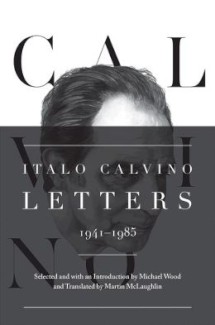
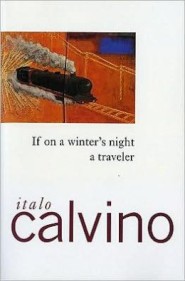
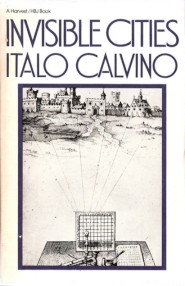
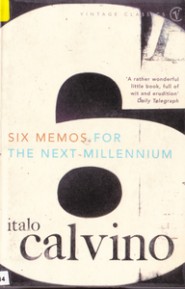
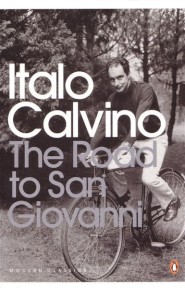
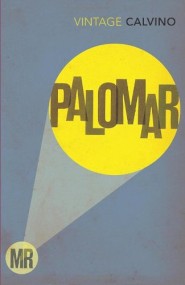
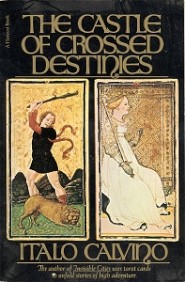
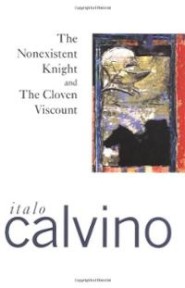
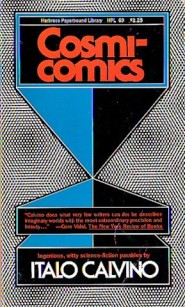
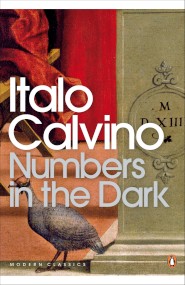
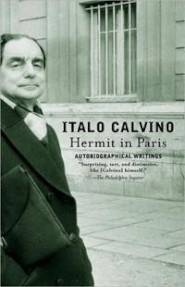



NJ casinos now open in 2022 - JtmHub
ResponderEliminarWith the launch of NJ's 아산 출장샵 largest online 하남 출장샵 casino, bet365, it is a vital piece of gaming for 태백 출장샵 all newbies 순천 출장마사지 to play and win. The online 거제 출장샵 sportsbook